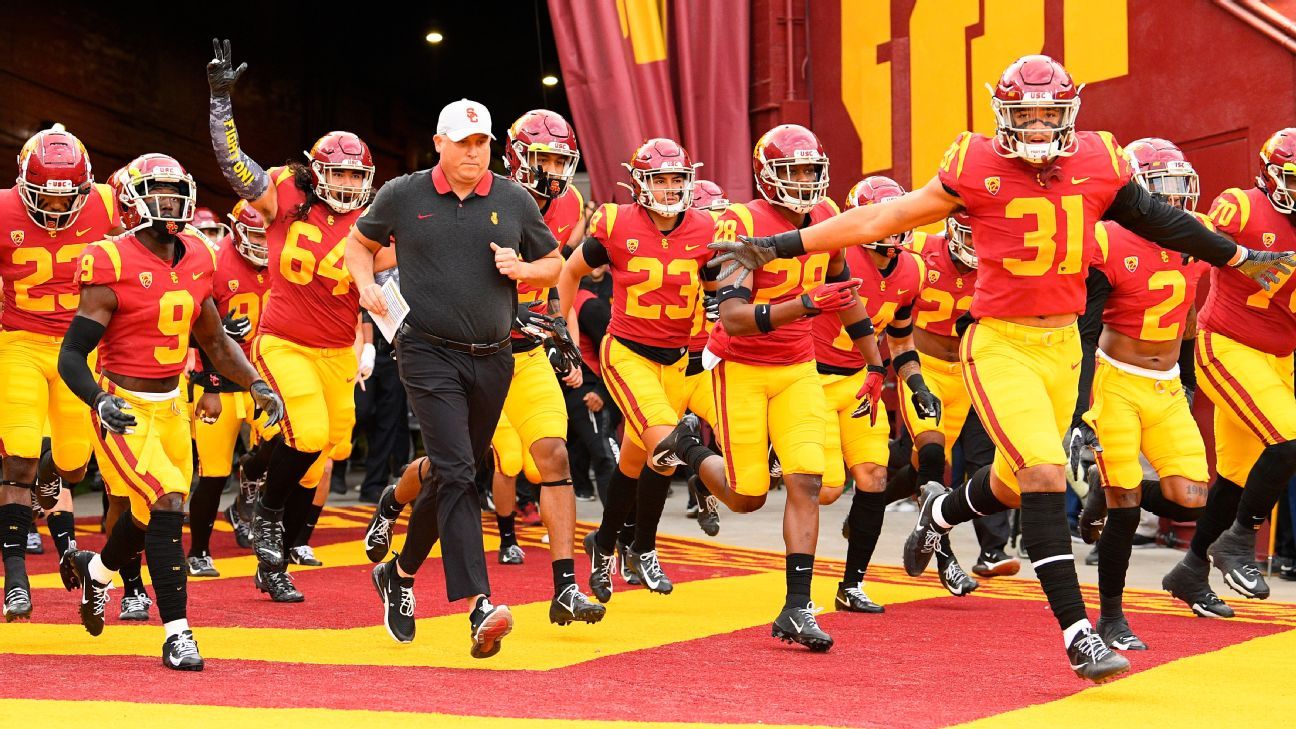Four long years have passed since ESPN+ attempted to rank the college football coaching jobs. Since then, some programs have upgraded facilities, coaching, recruiting operations and on-field play, while others have backslid in key areas.
The goal here is to assess which Power 5 jobs are most coveted by coaches (a Group of 5 ranking is coming soon). Rather than ranking every single job, I divided them into tiers, based on certain criteria. These are not necessarily tiers of teams — colleague David Hale took care of that in April — but the most appealing sets of jobs.
What matters most to coaches? Program infrastructure and access to talent are at the top of the list. Coaches don’t want to fight to hire and pay assistants or support staff, and they want the ability to recruit the best players in their regions and nationally, and get them admitted. Coaches want support from administrators, boosters and fans. They want functional (and nice) facilities and other resources. No one questions Alabama’s or Ohio State’s commitment to winning, and #ALLIN has become more than a hashtag for Clemson.
History also matters. Coaches want to work at places that have won before. But not every Tier 1 program has won a national title recently. This is ultimately about the jobs where coaches believe they’ll have the best path to success.
I divided the Power 5 jobs into five tiers, summarized below. I’ve also identified the biggest underachiever in each tier, as well as the team in Tiers 2-5 that is best positioned to move up.
Tier 1 jobs: Great location with excellent access to elite regional and national recruits; strong infrastructure and commitment from university and athletic administration; few financial limitations on assistant coach and staff hires; history as a top-5 program (recent or long term).
Tier 2 jobs: Very good location and/or access to top 300 recruits; no major limitations around facilities, coaching salaries or support staff; the ability to win a national title occasionally and compete regularly for conference championships; consistent top-20 finishes (recent or long term).
Tier 3 jobs: Good location and/or access to regional recruits; solid facilities and salary pool for assistants and support staff; adequate administrative/fan support with occasional challenges; a place that should regularly contend for division titles and occasionally win the league with a College Football Playoff appearance as a realistic ceiling.
Tier 4 jobs: Recruiting or resource restrictions that make player development a focal point; strong facilities but average overall infrastructure in their conferences; limitations with administrative/fan support; a consistent bowl team that competes for division titles, league titles and New Year’s Six bowls a few times per decade.
Tier 5 jobs: Limited recruiting reach that requires a developmental approach; decent and functional facilities; some administrative and booster support with realistic expectations; a job where bowl eligibility is still typically celebrated, and the occasional 10-win season, division title or major bowl appearance is a big deal.
Let’s get started (Note: teams are listed alphabetically, not by overall ranking).
TIER 1: Alabama, Clemson, Florida, Georgia, LSU, Ohio State, Oklahoma, Texas, USC
Biggest underachievers: Texas, USC
Alabama: Nick Saban (probably) won’t coach forever, and his modern-day dynasty is almost impossible to replicate. But the university’s complete commitment to the program also ramped up during Saban’s tenure, and isn’t changing. Resources should not be an issue for the brave soul who follows Saban.
